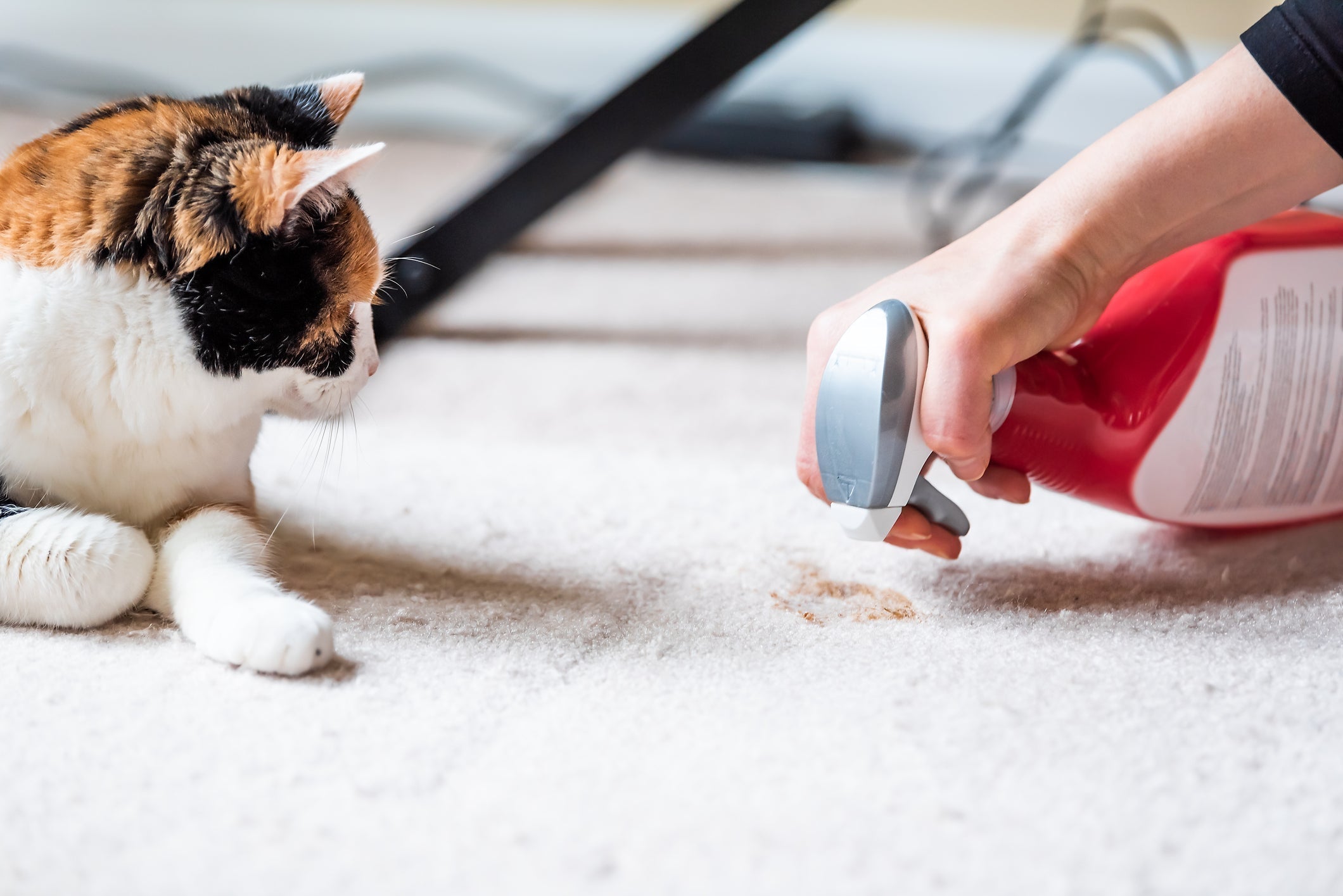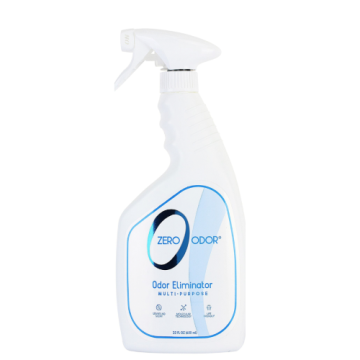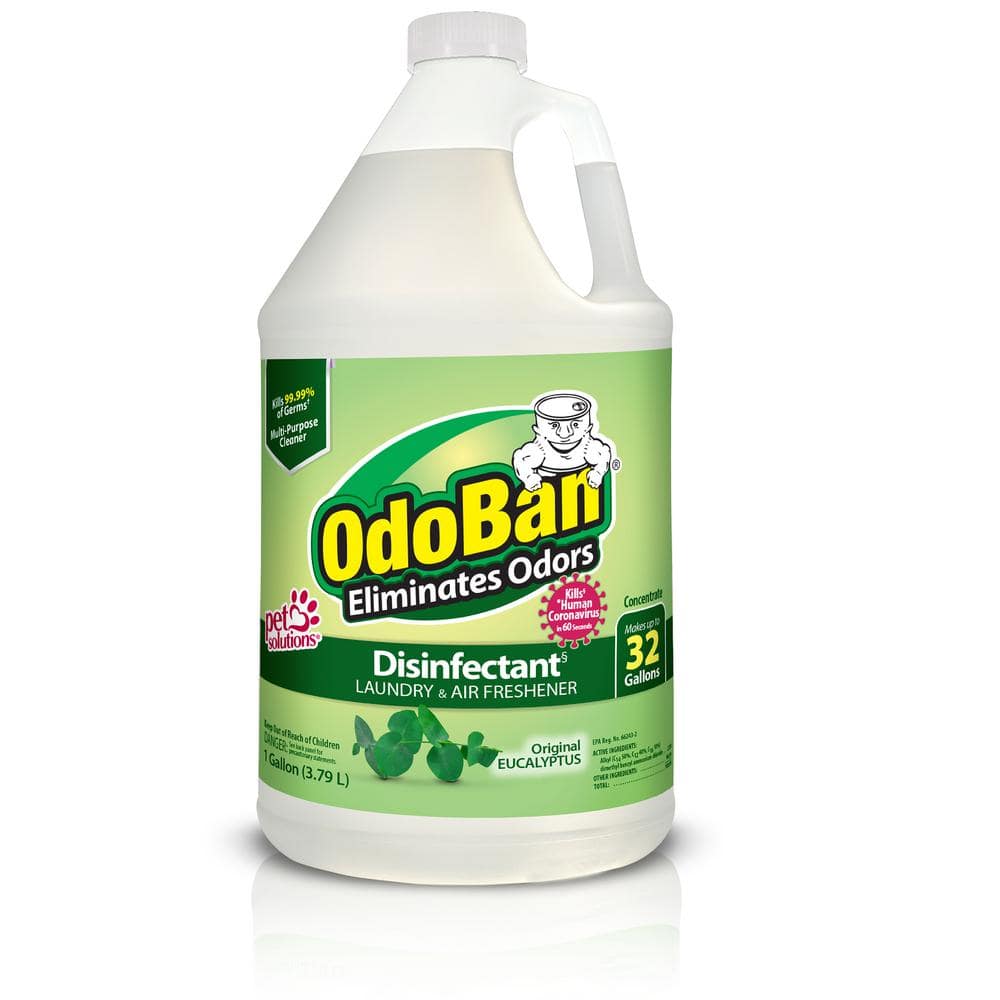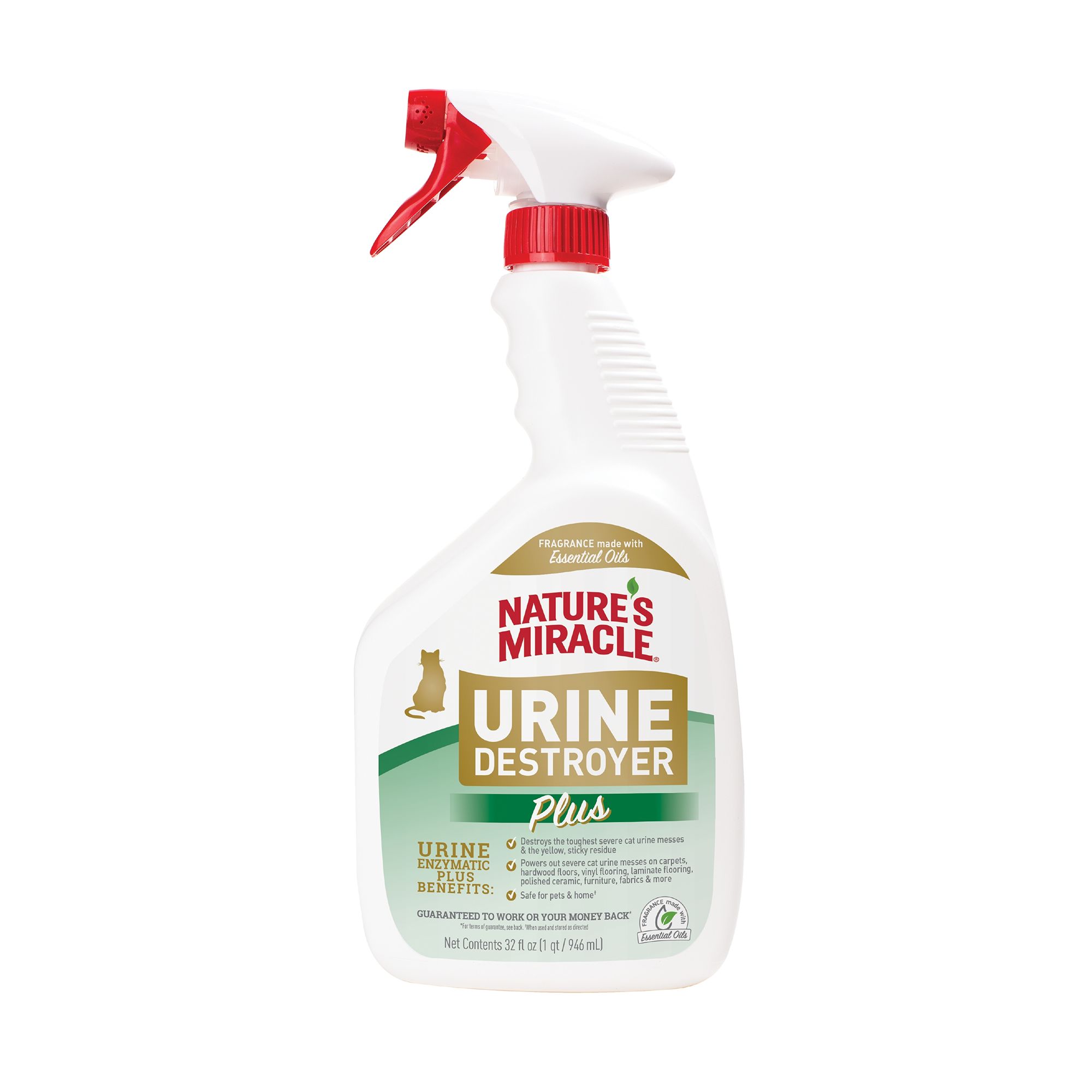How to Get Rid of Cat Pee Smell Fast and For Good

Ever caught a whiff of your cat’s pee and wondered why it smells so bad? It’s even worse when your cat has an accident and no matter how much you clean, that strong smell just sticks around. Let’s take a look at what makes cat urine so pungent and what you can actually do to get rid of it for good.
Key Takeaways
- Enzymatic cleaners are effective
- Prevent future accidents by keeping the litter box clean, using calming litters (like Boxie® Glo™), or addressing any health issues with your vet.
Why Cat Pee Smells So Strong (Understanding the Problem)
The Science Behind Cat Urine Odor
Cat pee consists of multiple components that result in the strong odor:
- Urea: A nitrogenous waste product. When urea is broken down by bacteria, it releases ammonia, which has a sharp, pungent smell.
- Uric acid: A metabolic waste product that is difficult to dissolve and remove, which can contribute to lingering odors.
- Felinine: Unique to cats, felinine is an amino acid that, when broken down by enzymes, produces a sulfur-containing compound responsible for the distinctive "catty" odor.
- Mercaptans: As cat urine decomposes further, it releases mercaptans, which are sulfur compounds that also contribute to the skunky, lingering odor.
- Cat Ketone: A compound that also adds to the characteristic smell.
Why Traditional Cleaners Don't Work
Regular household cleaners can wash away some parts of cat pee, like urea and creatinine, but they leave behind uric acid, which sticks to surfaces and doesn’t come off with water. Uric acid causes persistent smells in cat pee.
Uric acid can remain embedded in carpets, floors, or fabrics for years and will reactivate, releasing odor, whenever exposed to moisture or humidity. As a result, even after cleaning, the smell often returns, especially on damp days.
Immediate Steps to Take When You Find Cat Pee
Acting Fast: The First 30 Minutes
Your cat had an accident?
Don’t wait! The sooner you clean it, the better! Fresh pee is easier to deal with than dried-up spots.
What NOT to Do (Common Mistakes)
Don’t scold your cat. Accidents can happen for all sorts of reasons—stress, illness, a dirty litter box, or even a new smell in the house.
Avoid using regular cleaners.
How to Get Rid of Cat Pee Smell from Carpet
Step-by-Step Cat Pee Carpet Cleaning Method
Be sure to choose professional pet odor eliminator products labeled as pet stain and odor eliminator or enzymatic cleaner. They’re specially made to break down the tough smells in pet messes.
Here’s what to do when your cat has a pee accident:
-
Blot the area with a paper towel or cloth.
-
Spray the enzyme cleaner on the area.
-
Let it sit (follow the bottle’s instructions).
-
Blot and let it air dry completely.
DIY Solutions vs Professional Products
Depending on the situation, DIY solutions may work for cat accident cleanup.
- For quick cleanup of fresh accidents: DIY might work in a pinch.
- For set-in smells: Go with a professional enzymatic cleaner—your nose (and your carpet) will thank you.
- Best of both worlds: Start with a DIY cleanup, then follow up with a pro product to finish the job.
When to Call Professional Cleaners
If you have tried everything and the smell won’t go away and your cat keeps going to the same spot, then it’s time to call a professional cleaner.
Removing Cat Pee Smell from Hardwood Floors
Surface Treatment Methods
Just like with carpets, don’t wait and act fast!
-
Blot the excess with a paper towel or cloth.
-
Spray the area thoroughly with an enzymatic cleaner.
-
Let it sit as long as the label recommends.
-
Blot up excess and allow it to air dry completely.
Tip: Test the cleaner on a hidden spot first to make sure it won’t damage the finish.
Dealing with Deep Penetration
Even if the cat pee has seeped into the wood, enzyme cleaners are still your best first line of defense. Follow the instructions above.
If the finish is damaged or the wood has stains, you might need to lightly sand off the top layer, treat it again with enzyme cleaner, and then refinish the area.
⚠️ Only do this if you're comfortable handling light sanding or consult a pro—wood can be easily damaged.
A professional hardwood floor restoration or cleaning service can also help as they have tools to lift boards, dry underlayers, and restore the wood properly.
Refinishing Options
If the smell still lingers after enzyme treatment and sanding:
Apply a stain- and odor-blocking sealant made for wood floors.
This locks in any remaining odor molecules.
After sealing, you can refinish or stain the area to match the rest of your floor.
⚠️ Only do this if you're comfortable handling light sanding or consult a pro—wood can be easily damaged.
Getting Cat Pee Smell Out of Furniture and Upholstery
Here’s your complete guide to remove cat urine smell out of furniture and upholstery.
Fabric Furniture Solutions
As always, act fast and use the right cleaner to save your furniture.
-
Use paper towels or a cloth to soak up as much cat pee as possible.
-
Spray an enzymatic cleaner generously over the stained area and follow the instructions.
-
Blot again and let it fully air dry.
-
Repeat as Needed: Deep or old stains may need more than one treatment.
TIP: Avoid steam cleaners as they can set the stain and smell and always test products on a small hidden area first.
Leather Furniture Care
Pet stain and odor removal on leather furniture requires a few extra steps:
1. Gently wipe the area with a soft cloth—don’t scrub.
2. Mix a little dish soap and warm water. Use a cloth to clean the area.
3. Rinse + Dry: Wipe off the soap with a clean damp cloth, then dry with a towel.
4. Use a leather-safe enzymatic cleaner. Test in an inconspicuous area first.
5. After cleaning, apply a leather conditioner to restore softness and shine.
Mattress Odor Removal
Ammonia smell removal for mattresses can be tricky. Here are our recommendations:
-
Get as much urine out as quickly as possible with a towel.
-
Spray the area thoroughly with a mattress cleaner designed for pet odor neutralizer.
-
After spraying, lay a clean towel over the area, then add something heavy (like books) on top. This helps pull out urine from deep in the mattress.
-
Give it 24–48 hours to dry completely.
-
Repeat if needed. For strong or old stains, it may take 2–3 rounds.
-
Bonus Step: Once dry, sprinkle baking soda, leave for a few hours, then vacuum.
Eliminating Cat Pee Smell from Concrete and Tile
Porous Surface Challenges
Concrete looks solid, but it’s actually very porous. Cat pee can soak deep into its tiny holes, making it hard to clean with surface-only products.
Sealing and Treatment Options
-
Soak up any fresh urine with paper towels.
-
Rinse the area with water to dilute the pee before applying any cleaner.
-
Apply enzymatic cleaner generously. Don’t just spray, soak the area to reach deep into the concrete.
-
Cover the spot with plastic wrap to slow evaporation and give the enzymes time to work (overnight is best).
-
Let it air dry completely—this can take 24–48 hours. Repeat if needed.
Best Products to Remove Cat Pee Smell
Enzymatic Cleaners (Top Recommendations)
1. Rocco & Roxie Stain & Odor Eliminator

-
Why it’s great: Highly rated by pet owners for removing both stains and deep-set odors.
-
Safe for: Carpets, furniture, tile, hardwood, and even laundry.
- Bonus: Certified safe by the Carpet and Rug Institute.
Shop here.
2. Nature’s Miracle Cat Urine Destroyer
- Why it’s great: Specifically made for cat urine, this formula targets the strong ammonia smell.
- Safe for: Hard floors, soft surfaces, and fabrics.
-
Bonus: Available in both regular and “Set-In Stain” formulas.
Shop here.
3. Simple Solution Cat Stain & Odor Remover

-
Why it’s great: Uses a professional-strength formula with multiple enzymes for tough, repeat offenses.
-
Safe for: Carpets, bedding, clothing, and upholstery.
- Bonus: Comes with a special spray nozzle (stream, foam, mist) for different types of messes.
Shop here.
Commercial Odor Eliminators
-
Zero Odor Multi-Purpose Household Eliminator

-
Why it’s great: Doesn’t mask odors—it actually changes the molecular structure of odor particles.
-
Best for: Air, fabrics, carpets, and hard surfaces.
-
Safe for pets: Yes, when used as directed.
- Bonus: Leaves behind almost no scent—great if you're sensitive to fragrance.
Shop here.
2. Odoban Odor Eliminator and Disinfectant

- Why it’s great: Combines odor elimination and disinfection in one product.
- Best for: Hard surfaces, floors, fabrics, and even laundry.
- Safe for pets: Yes, once fully dry.
- Bonus: Affordable in bulk and available in various scents (like eucalyptus and lavender).
Shop here.
3. Thornell Cat Odor-Off

- Why it’s great: Developed for veterinary clinics, this product is highly effective on strong cat urine smells.
- Best for: Carpets, upholstery, cages, kennels, and subfloors.
- Safe for pets: Yes.
- Bonus: Specifically targets odors at the source, not just the surface.
Shop here.
DIY Solutions That Work
Here are a few DIY ingredients that can help neutralize pet odors effectively:
- Baking Soda
- White Vinegar
- Hydrogen Peroxide
See below for recommendations!
Natural Home Remedies for Cat Pee Odor
Baking Soda Methods
Baking soda works great for any lingering odors. Sprinkle dry baking soda on the area once it's clean and dry to absorb any lingering odor. Vacuum it up the next day.
White Vinegar Solutions
If you do not have an enzymatic cleaner on hand, a 1:1 mix of water and vinegar may work well for fresh accidents. Just spray it on the spot and blot it up with a clean cloth.
Hydrogen Peroxide Treatments
A hydrogen peroxide solution can be an effective option for cleaning up fresh cat urine accidents. Mix a solution of 3% hydrogen peroxide with a small amount of mild dish soap (a few drops per cup of peroxide). Gently spray the affected area, making sure it’s fully covered and let it sit for 5–10 minutes. Blot and air dry.
Preventing Future Cat Pee Problems
Understanding Why Cats Pee Outside the Litter Box
Imagine if your bathroom was dirty or smelled strongly of perfume. Would you avoid it as well? Cats are very clean creatures that are highly sensitive to smells and texture of their litters.
Litter Box Maintenance
Many cat litter box issues come from dissatisfaction. Cat litter box maintenance is key to prevent cat litter box problems. Here are some tips to make sure you set your cat up for the best and cleanest litter box experience.
Keep the litter box clean by scooping daily. Boxie® litter clumps lock in odors and stays clean with every scoop. That means you do not need to dump out the whole litter box monthly. Just top off!
Use the right litter for your cat. We recommend Boxie® Glo™ Natural Attractions™ cat litter as it contains UV sparkles that attract cats to the litter box and help prevent litter box stress. In addition, its superior odor control keeps the litter box clean to prevent accidents.

Behavioral Solutions
Avoid using strongly fragranced litter or litters with rough granules.
Clean the litter box daily. If the litter box is not clean and not to the cat’s preferences, they will tend to avoid it.
Find the right location for the litter box. A quiet, low-traffic area helps.
Test different litters. Unscented or different substrates may help. Take Boxie’s litter quiz to find out which formula is right for you.
When to Seek Professional Help
Severe Odor Situations
If the smell sticks around even after you’ve cleaned and used enzyme treatments a few times, there’s a good chance the urine has soaked into places like the subfloor, walls, or even insulation. That becomes an even bigger issue if you’re getting ready to rent, sell, or move out, since that lingering odor can turn off potential buyers or renters and cause problems during inspections. A pro can help find those hidden trouble spots, such as under the floor or behind the walls, and treat them properly.
Health Concerns
If someone in your home has asthma, allergies, or is sensitive to strong smells or chemicals, lingering pet odors can make things a lot worse. When accidents keep happening, the moisture can get trapped and lead to mold or mildew, which only adds to the problem. Sometimes, even you or your pets might start getting itchy skin or watery eyes from the ammonia in the pee or from using strong cleaners. That’s when it’s a good idea to call in a professional. They know how to handle these tough messes safely and thoroughly.
Property Damage Assessment
If cat pee has soaked into things like your floors, subfloor, drywall, or baseboards, it could be causing more damage than you realize—especially if you're starting to see warping, bubbling, or stains on wood or laminate. In cases like this, it’s best to bring in a pro. They can figure out if the damage can be cleaned up or if parts need to be replaced.
FAQ
Why does cat pee smell so bad and linger for so long?
Cat urine contains urea, uric acid, felinine, and mercaptans—compounds that break down into strong-smelling chemicals like ammonia and sulfur. Uric acid, in particular, sticks to surfaces and reactivates with moisture, causing the smell to return even after cleaning.
What kind of cleaner works best to eliminate cat urine odor?
Enzymatic cleaners are the most effective. They break down the uric acid and other odor-causing compounds in cat pee that regular household cleaners leave behind. Look for cleaners labeled specifically for pet stain and odor removal.
How should I clean cat pee from carpets or hardwood floors?
Blot the area with paper towels, spray an enzymatic cleaner thoroughly, let it sit (as directed), then blot and air dry. For deep stains or damage to wood, sanding and sealing may be needed, or you may want to consult a professional.
Can DIY solutions like vinegar or baking soda really work?
For fresh accidents, DIY solutions like baking soda can help neutralize odors. However, for dried or strong smells, it's best to follow up with a professional enzymatic cleaner for thorough removal.
How can I prevent my cat from peeing outside the litter box again?
Keep the litter box clean by scooping daily and using the right litter (like Boxie® Glo™). Make sure the box is in a quiet location, and rule out medical or behavioral issues with your vet.
- Tags: Fur Family Fun Litter 101






